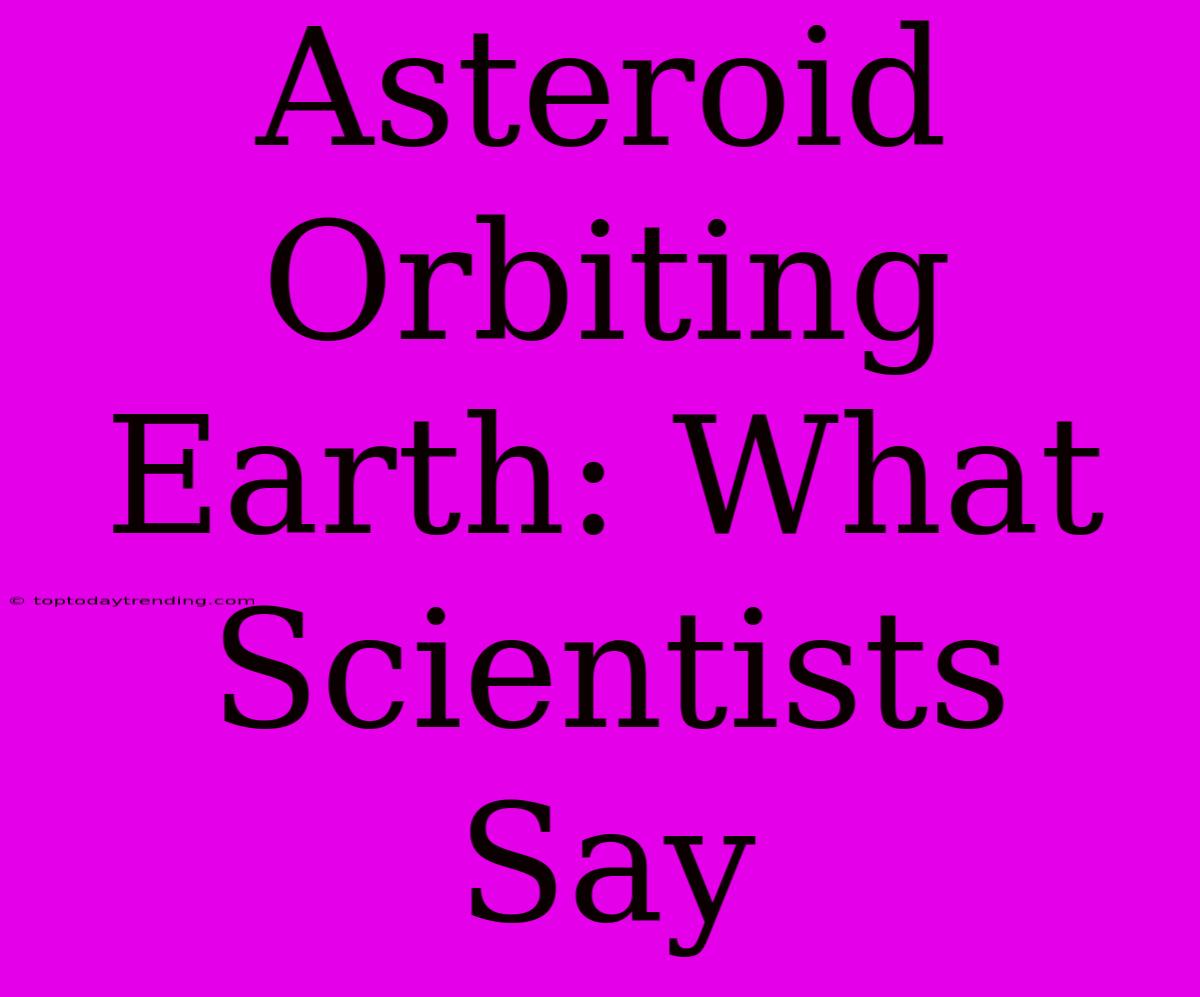Asteroid Orbiting Earth: What Scientists Say
The idea of an asteroid orbiting Earth may sound like something straight out of a science fiction movie, but it's a real phenomenon that has captured the imagination of scientists and the public alike. While the vast majority of asteroids reside in the asteroid belt between Mars and Jupiter, a select few have found their way into Earth's gravitational embrace, becoming mini-moons.
What are Earth-Orbiting Asteroids?
These celestial objects, also known as quasi-satellites, are not true moons in the traditional sense. They don't orbit Earth directly, but instead, they follow a complex path around the Sun that happens to closely resemble Earth's orbit. This means they appear to be orbiting our planet, but in reality, they are just sharing a similar orbital path.
How Many Earth-Orbiting Asteroids Are There?
Scientists have identified only a handful of confirmed Earth-orbiting asteroids. One of the most well-known is (469219) 2016 HO3, which has been accompanying Earth for nearly a century. This asteroid, measuring around 100-200 feet across, is considered quasi-stable, meaning it is likely to remain in its current orbit for thousands of years.
The Significance of Earth-Orbiting Asteroids
While these space rocks pose no immediate threat to Earth, studying them offers valuable insights into:
- Orbital dynamics: The complex paths of these asteroids provide a unique opportunity to study the intricate interplay of gravitational forces in the solar system.
- Asteroid composition: Analyzing the spectral signatures of these objects helps us understand the chemical makeup of asteroids, providing clues to the early history of our solar system.
- Potential for resource extraction: In the future, some asteroids may become potential sources of valuable resources like minerals and water, which could be crucial for space exploration and colonization.
Are Earth-Orbiting Asteroids Dangerous?
Although these asteroids are currently not on a collision course with Earth, their orbits are constantly evolving due to gravitational influences from the Sun, Earth, and other planets. While the likelihood of a collision is extremely low, it's not impossible.
Ongoing Research and Future Prospects
Scientists continue to monitor these objects closely, using ground-based telescopes and space-based observatories. The more we learn about Earth-orbiting asteroids, the better equipped we are to predict their future paths and mitigate any potential risks.
The Future of Earth-Orbiting Asteroids
The study of these celestial objects is still in its early stages. As technology advances, we can expect to discover more Earth-orbiting asteroids and gain a deeper understanding of their origins and behavior. This knowledge will not only enhance our understanding of the solar system but also pave the way for future space exploration and resource utilization.

